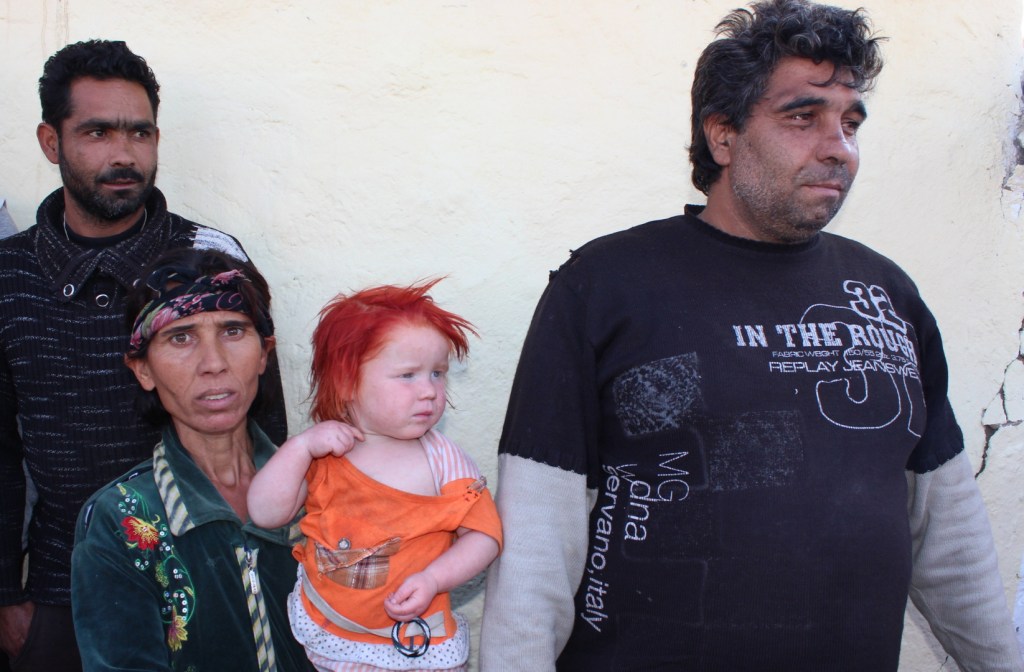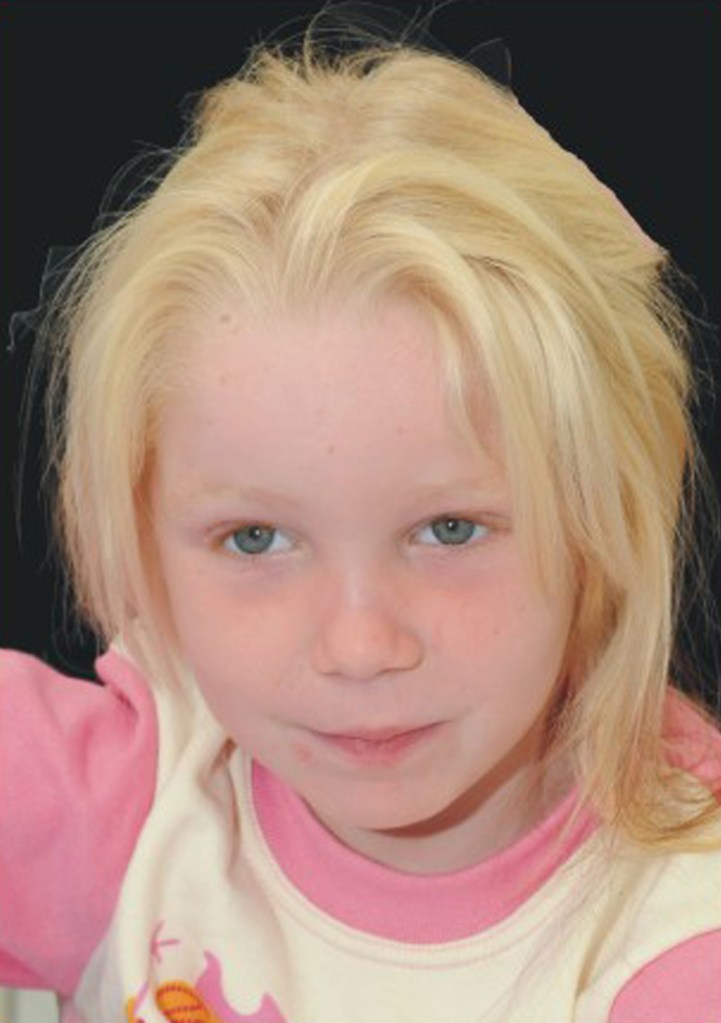NIKOLAEVO, Bulgaria — The mystery is solved – but the future of the young girl known only as Maria is still uncertain.
DNA tests have confirmed that a Bulgarian Roma couple living in an impoverished village with their nine other children are the biological parents of the girl found in Greece with another Roma couple, authorities said Friday.
Genetic profiles of Sasha Ruseva, 35, and her 37-year-old husband, Atanas, matched that of Maria, Bulgarian Interior Ministry official Svetlozar Lazarov said Friday.
By late Friday, the couple had not returned to their home that was surrounded by local and international reporters after the news was announced.
Three of the couple’s youngest children were taken to a shelter for temporary care, said Diana Kaneva, director of social services for the central Stara Zagora region.
Ruseva had said she gave birth to a baby girl four years ago in Greece while working as an olive picker but gave the child away because she was too poor to care for her. She since has had two more children after Maria.
Maria has been in a charity’s care since authorities raided a settlement of Roma, also known as Gypsies, in Greece last week and found she was not related to the Greek Roma couple she was living with.
Her discovery triggered a global search for her parents, fears of possible child trafficking and interest from authorities dealing with missing children cases in Poland, France, the United States and elsewhere.
Human rights groups also have raised concerns that the news coverage about Maria and the actions taken by authorities were fueling racist sentiment against the European Union’s Gypsy minority, who number around 6 million.
The Bulgarian prosecutor’s office and Greek authorities were “seeking clarification on whether the mother agreed to sell the child,” the Interior Ministry said in a statement.
It wasn’t clear if Maria had been told who her real parents are. The Greek charity Smile of the Child, which has been looking after her, would not comment on the case.
Social services director Kaneva, after visiting the Ruseva home, said the child would likely be returned to Bulgaria for adoption.
“Maria will first be brought to a family crisis center, and after they (authorities) will seek for suitable foster family,” she said.
The Rusevs and their other children live in a dilapidated, mud-floored house outside the remote Bulgarian town of Nikolaevo, 175 miles east of the capital, Sofia.
The Roma quarter houses some 2,000 people. Most are jobless, living in extreme poverty, trying to stay warm in shabby houses. Children played Friday in mud-covered streets as pigs, cats and hens ambled by.
Minka Ruseva, a 14-year-old who is one of the Rusev family’s children, stood in front of their two-room house. Minka said she saw pictures of Maria on TV and wanted her back home.
“We will take care of her, and I can help my mother,” Minka said.
Copy the Story LinkSend questions/comments to the editors.




Success. Please wait for the page to reload. If the page does not reload within 5 seconds, please refresh the page.
Enter your email and password to access comments.
Hi, to comment on stories you must . This profile is in addition to your subscription and website login.
Already have a commenting profile? .
Invalid username/password.
Please check your email to confirm and complete your registration.
Only subscribers are eligible to post comments. Please subscribe or login first for digital access. Here’s why.
Use the form below to reset your password. When you've submitted your account email, we will send an email with a reset code.